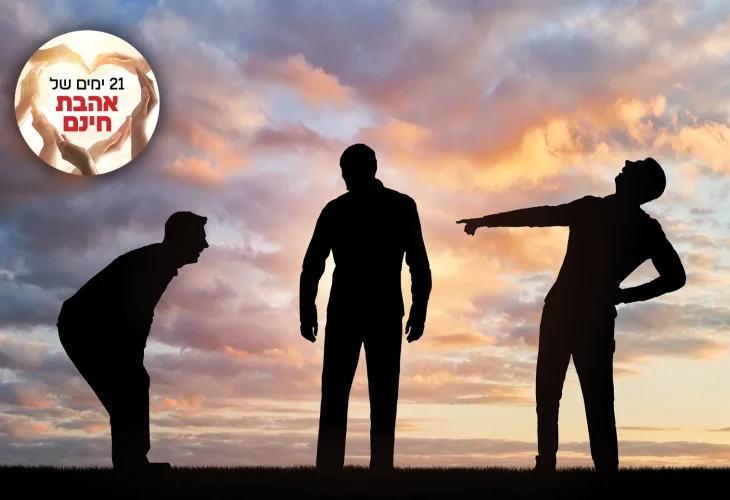Jewish Law
Words that Kill
The Torah prohibition of humiliating others and the harsh punishment for those who do so
 (Photo: shutterstock)
(Photo: shutterstock)The Prohibition of Humiliating Others
Humiliating others in public and harming a person's dignity is one of the most severe transgressions in the Torah. The Sages stated (Bava Metzia 59a) that, "Someone who humiliates another person in public is considered to have shed his blood." This statement emphasizes how serious it is to embarrass someone and how careful we must be with our words and actions.
The prohibition against humiliating others forbids us to degrade others, embarrass them, or cause them discomfort. This negative mitzvah is derived from the verse: "You shall surely rebuke your fellow, but you shall not bear a sin because of him" (Vayikra 19:17). Rashi explains that while there is a mitzvah to rebuke a person for their transgressions, it must be done carefully and without causing them embarrassment.
Humiliating others harms both the soul and dignity of a person and can cause severe and long-lasting emotional damage. The pain and shame caused by such actions can deeply affect a person and leave psychological scars.
The Severity of the Prohibition Against Humiliating Others
Losing one's share in the World to Come: "Rabbi Elazar HaModai says ... someone who humiliates his fellow in public ... even if he has Torah knowledge and good deeds, he has no share in the World to Come" (Pirkei Avot).
Descending to Gehinnom and not ascending: "Rabbi Yochanan said: 'All who descend to Gehinnom eventually ascend, except for three [categories] who descend but do not ascend. They are: someone who commits adultery with a married woman, someone who humiliates his fellow in public, and someone who gives his fellow a derogatory nickname'" (Bava Metzia).
Being considered as having committed murder: "Anyone who humiliates his fellow in public is as if he has shed his blood" (Bava Metzia).
The severity of this prohibition is great; nevertheless, Rambam (Maimonides) writes: "But if one repents, he is among those who merit the World to Come, for nothing stands in the way of repentance" (Laws of Repentance, Chapter 3, Law 14).
Advice for Avoiding Humiliating Others
Think before you speak: It's always advisable to consider your words before saying them. Ask yourself whether your words might hurt the other person.
Speak with respect and courtesy: Preserve the dignity of every person and speak politely. Avoid using words that might humiliate or hurt.
Be empathetic: Try to understand the feelings of the other person and think about how you would feel in their place.
Apologize if you've hurt someone: If you said something that hurt another person, apologize sincerely and ask for forgiveness.
Educate your children: Learning to respect others and offer empathy is especially important at a young age. Explain to your children the importance of speaking respectfully and avoiding humiliating others.
Practical Examples
At school: A student who treats another student in class or in public with disrespect can cause serious harm. Teachers should emphasize the importance of mutual respect and encourage appropriate behavior while calling out behavior that embarrasses or humiliates others.
At work: A manager who embarrasses an employee in public or with dismissive comments can cause deep hurt. One should act respectfully and criticize employees respectfully and in private.
On social media: Hurtful posts and comments can cause severe damage. It's important to remember that behind the screen are people with feelings, and one should avoid making offensive remarks.
Let's make an effort to avoid causing harm or humiliation, and to remember the power of our words. Each of us can change the world through small acts of respect and empathy.

